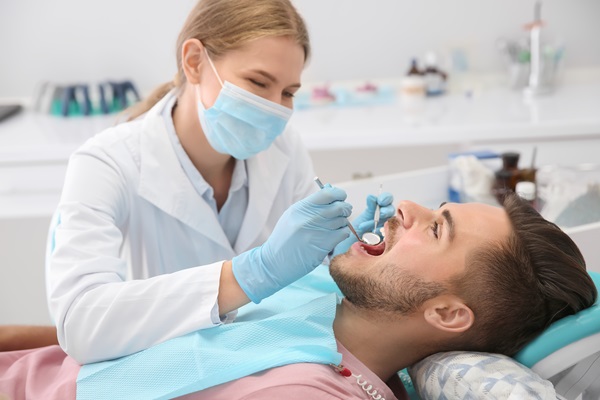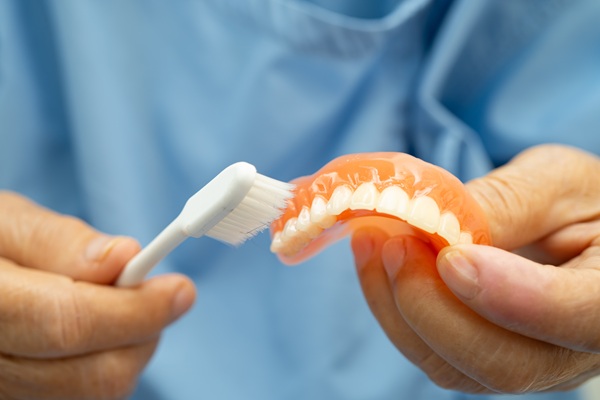A General Dentist Answers Bruxism FAQs

General dentists state that bruxism is a condition that involves the grinding of the top and bottom arches of teeth. The act often happens at night while a person is asleep, making it involuntary. However, some individuals are also known to grind their teeth during the day as well.
Although teeth grinding does not sound too serious, general dentists urge those who experience it to seek help. Continue reading to learn more about bruxism and how a general dentist can help. This information can be helpful to those who struggle with the condition.
Bruxism FAQs
Outlined below are some frequently asked questions and answers about bruxism. These are answered by a general dentist, who is the best person to refer to when it comes to dental problems.
1. Is bruxism harmful?
General dentists do recommend getting bruxism treated and managed as soon as it starts occurring. The jaw is very strong, but the constant act of grinding can result in problems with the teeth, gums, jaw, and even facial muscles if treatment is not administered. When bruxism first starts, it will not be extremely harmful. However, if a general dentist does not take action, the long-term effects can be permanent and dangerous to the oral cavity.
2. Does a general dentist treat bruxism?
Yes! General dentists are qualified and trained to treat bruxism. In most cases, the condition does not require the help of a specialist. In severe cases of bruxism, a general dentist may bring in someone to help with jaw exercises or speech therapy as the condition can lead to other problems. However, the first person to visit for bruxism is a general dentist.
3. What causes bruxism?
Bruxism is different for everyone, according to a general dentist. However, for the most part, it is caused by stress, changes in the jaw or teeth, or as a result of other dental conditions.
4. How is bruxism treated by a general dentist?
General dentists may recommend a few things for bruxism. It is important to review them in order to reach a resolution for the symptoms.
- Mouthguard or nightguard
- Muscle relaxers
- Bite splints
- Jaw exercises
5. Is bruxism permanent?
Not necessarily. A lot of individuals outgrow bruxism as it is based on the muscles of the face and jaw, both of which can change over time. Additionally, when a general dentist administers treatment for the condition, it helps to reduce the symptoms, which can ultimately make it temporary. This is not to say that this will be the case for everyone. Some individuals may experience bruxism for their entire life.
Talk to a general dentist about bruxism
Bruxism is a dental condition that general dentists can help with. Additionally, if there are any other questions past those that are answered above, talking to a dentist is the right step to take. To learn more about bruxism or how a general dentist can help, reach out today!
Request an appointment here: https://www.annarborpersonaltouchdentistry.com or call Shiva G. Rad, D.D.S. at (734) 436-0817 for an appointment in our Ann Arbor office.
Check out what others are saying about our dental services on Yelp: General Dentists in Ann Arbor, MI.
Recent Posts
In general dentistry, cracked teeth are, unfortunately, a common problem that requires attention. Thankfully, modern-day dentistry has created a few different options that can solve the problem of a cracked tooth. In most situations, a general dentist can salvage a cracked tooth; however, it is important to know that there are a few factors that…
A general dentist performs most of the treatments commonly used in dentistry. These oral professionals spend most of their time performing preventative treatments, like tooth cleanings, but they also perform more complex treatments, like root canals. A general dentist also serves as an educator, teaching patients how to properly take care of their teeth and…
A deep teeth cleaning is not just a procedure needed after skipping dental visits. Instead, a deep teeth cleaning is designed to help combat periodontal disease and gum recession, both of which can lead to irreversible oral health problems. Of course, some individuals who skip routine maintenance from the dentist may need a deep teeth…
Dental exams are an important part of visiting a general dentist. The examination portion of the appointment is crucial in catching any warning signs that may indicate problems, such as cavities or gum disease. In particular, gum disease can be difficult to notice as it may present itself without any major warning signs. With that being…


